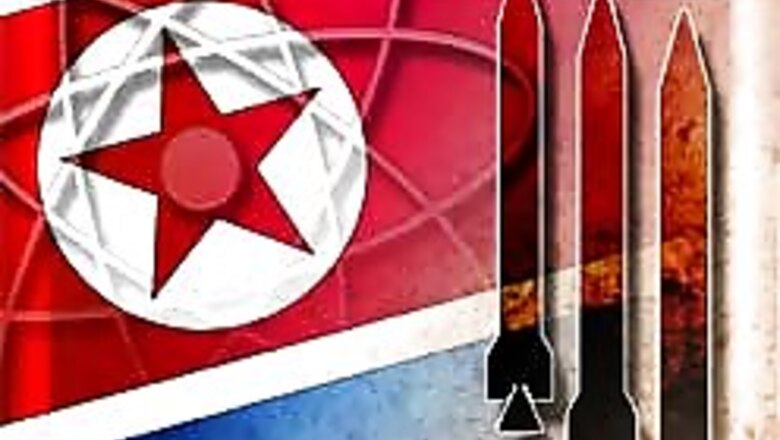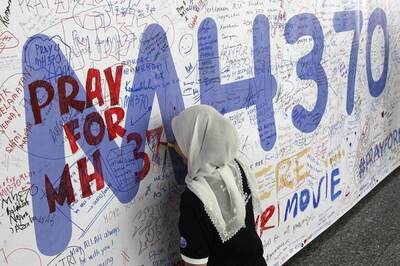
views
force if the international community tried to stop it.
Pyongyang: A defiant North Korea acknowledged for the first time on Thursday that it had launched several missiles, vowed to carry out more tests and threatened to use force if the international community tried to stop it.
North Korean state television KRT showed a news reader saying Pyongyang decided to test the missiles to step its military's capabilities.
"The latest successful missile launches were part of the routine military exercises staged by the KPA to increase the nation's military capacity for self-defence," said the newsreader.
"The DPRK (Democratic People's Republic of Korea) will have no option but to take stronger physical actions of other forms, should any other country dare take issue with the exercises and put pressure upon it," he said.
China, grappling with pressure from Washington over North Korea's missile tests, said its top negotiator on the North Korean nuclear crisis would visit Pyongyang next week.
Pyongyang's statement came as the United States and Japan closed ranks in the face of a UN Security Council split over whether to impose sanctions on North Korea for the volley of missiles it fired off on Wednesday.
After speaking to the leaders of China, Russia, Japan and South Korea over the last two days, Bush said on Thursday his message was to solve this problem diplomatically and to work with other nations to send a unified message that North Korea must adhere to international norms.
"But what we don't know is his intentions. So I think we've got to plan for the worst and hope for the best. And planning for the worst means to make sure that we continue to work with friends and allies as well as those who've agreed to be part of the six party talks to continue to send a unified message," he said.
At the UN, US Ambassador John Bolton told reporters that the US has strong international support for the condemnation of the missile launches.
"The support remains really overwhelming to make a very strong statement on condemnation of the North Korean missile launches, and I think to take strong aggressive measures in response. So obviously there's still a lot of negotiation to go, this is the United Nations, but I'm pleased with our progress to date," he said.
PAGE_BREAK
North Korean Ambassador to the UN, Pak Gil Yon, made no official comments to the press on Thursday following his country's first admission.
China's Foreign Ministry said on Thursday it would continue to press for a restart of six-party talks on North Korea's nuclear programme, and called for restraint on all sides in the wake of missile tests by Pygongyang.
"We have already expressed our serious concern over this event. China is now keeping in close touch with and having consultations with all parties. We hope all sides can continue to remain calm and restrained. All parties should take very seriously the peace and stability of the Korean Peninsula, do more for peace and stability of the Korean Peninsula and Northeast Asia, and refrain from doing anything that would further tensions and complicate this issue. For a long time the Chinese side has been active in promoting the easing of tensions in Korean Peninsula, and in maintaining the peace and stability of the region. China will continue its efforts to promote six-party talks and devote ourselves to the peace and stability of the Korean Peninsula," said Foreign Ministry Spokesman Jiang Yu.
Russian Foreign Minister Sergei Lavrov said on Thursday it would be counter-productive at this stage for the United Nations to discuss sanctions against the country over its missile launches.
"We call for a very balanced evaluation of the situation, serious, but balanced. Because trying to talk straight away about the threat of sanctions leads to reciprocal threats from North Korea, as has happened before. And then you still have to return to negotiations, only then it will be in a more tense atmosphere. That is what we should try to avoid now," Lavrov told reporters.
Japan did not expect North Korea to immediately launch another Taepodong-2 ballistic missile, but believed there is still a danger that Pyongyang may launch more missiles.
"Currently we are not in a situation where we can be absolutely sure that North Korea will not launch more missiles, in other words the danger is not over," Chief Cabinet Secretary Shinzo Abe told reporters on Thursday.
Officials say North Korea launched at least six missiles from its east coast and, as the international community fumed, fired off a seventh some 12 hours later.
The missiles included a long-range Taepodong-2, which some experts had said could hit Alaska. US officials said it flew for less than a minute and splashed into the sea west of Japan.

















Comments
0 comment